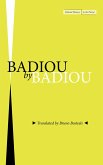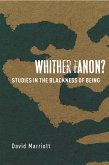"While it is a truth widely (though not universally) acknowledged that civility works against violence, and that literature generates or accompanies civility and engenders tolerance, civility has been understood as violence in disguise, and literature, which has only rarely sought to claim the power of violence, has often been accused of inciting it. This book sets out to describe the ways in which these English words--violence, literature, and civility--and the concepts they evoke are mutually entangled, and the uses to which these entanglements have been put. What now are our expectations of civility and literature, separately and together? How do these long-familiar but residually imprecise concepts stand up to the demands of the modern world? Simpson's argument is that both persist as important protocols for the critique of violence"--








